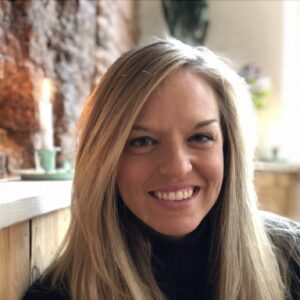
Co-Founder & CEO – Switchboard Health
With more than two decades in digital health, Derek Baird has seen just about every version of the “referral management” problem—first as an EMR product manager, and later as a patient, caregiver, and parent navigating the same maze. Now, as co-founder and CEO of Switchboard Health, he’s on a mission to make that process faster, smarter, and more human.
We caught up with Derek to learn more about why he started Switchboard, what he’s learned along the way, and why he’s excited to be building in Idaho.
What’s your current gig?
I’m the Co-Founder and CEO at Switchboard Health, a digital health company focused on transforming the specialty care referral experience. This part of healthcare has been broken for a long time. I’ve been working in healthcare for 23 years, and referrals still feel like a black hole. What’s exciting now is that value-based care and risk-bearing provider groups are creating real incentives to fix it. We want to be the team that finally gets this right—for everyone involved.
“I’ve been working in healthcare for 23 years, and referrals still feel like a black hole. What’s exciting now is that value-based care and risk-bearing provider groups are creating real incentives to fix it. We want to be the team that finally gets this right—for everyone involved.”
What’s your elevator pitch, and how do you deliver on it?
Switchboard is a digital health company with a mission that’s simple in concept but tough to pull off: coordinating high-value specialty care for people who need it. We work with provider groups and health plans to help them connect patients to high-quality, accessible, and in-network specialists who actually fit their needs.
We do that with software and smart algorithms that sit on top of data to identify the best care options. Let’s say you’re in Boise, you’ve got a Blue Cross of Idaho health plan, and your primary care provider says you need to see a neurologist. We make it incredibly easy for that practice to consider your insurance, your geography, and even your symptoms—and instantly suggest a great specialist, including virtual options if needed.
We aim to make referrals faster, easier, and smarter for providers, health plans, and most importantly, for patients who are often left wandering in the wilderness of the healthcare system.
What are the biggest lessons you’ve learned getting to this point?
“It’s easy to screen for intelligence when hiring, but you need to screen for humility too.”
One of the most important lessons I’ve learned in building Switchboard is that it’s easy to screen for intelligence when hiring, but you need to screen for humility too. We’re figuring things out as we go, so we’ve built a team of people who are smart, yes—but also curious, self-aware, and humble. We say “curiosity over being right” every single day. The work we’re doing is complex and meaningful, and ego just gets in the way of progress.
I’ve also learned it’s important to keep things fun. The work is serious, but you’ll never make it if you take yourself too seriously. If you’re grinding this hard and not celebrating the wins or laughing with your team, you’re going to burn out. I’m still working on this one myself.
“The work is serious, but you’ll never make it if you take yourself too seriously. If you’re grinding this hard and not celebrating the wins or laughing with your team, you’re going to burn out.”
And finally, I’ve learned that it’s important to always come back to the mission: helping people get the care they need. It’s easy to get caught up in product, meetings, or change management—but at the end of the day, we’re here to serve people who are lost in the system and deserve better. That keeps us grounded.
If you could wave a magic wand and change one thing about healthcare right now, what would it be?
If I could, I’d speed up the transition to value-based care. Reimbursement models that reward overutilization and create perverse incentives are still far too common. The shift is happening—but not fast enough.
Value-based care isn’t a silver bullet, but it’s a big step toward aligning incentives with actual health outcomes. I’d hit a “go faster” button on that change if I could.
Why are you excited about healthtech in Idaho?
“Bigger doesn’t always mean better. What’s happening in Idaho is special: it’s a tight-knit, supportive, and growing healthtech ecosystem. There’s new talent coming here all the time, a strong sense of community, and real excitement around building things that matter.”
Having spent time in LA, Seattle, and Denver, I’ve seen what big, mature ecosystems look like. Bigger doesn’t always mean better. What’s happening in Idaho is special: it’s a tight-knit, supportive, and growing healthtech ecosystem. There’s new talent coming here all the time, a strong sense of community, and real excitement around building things that matter.
We’re incredibly proud to be a Boise-based company. We hire locally when we can, and the support we’ve received—from team members, advisors, investors, and clients—has been remarkable. This is a great place to build a healthtech company, and it just keeps getting better.


